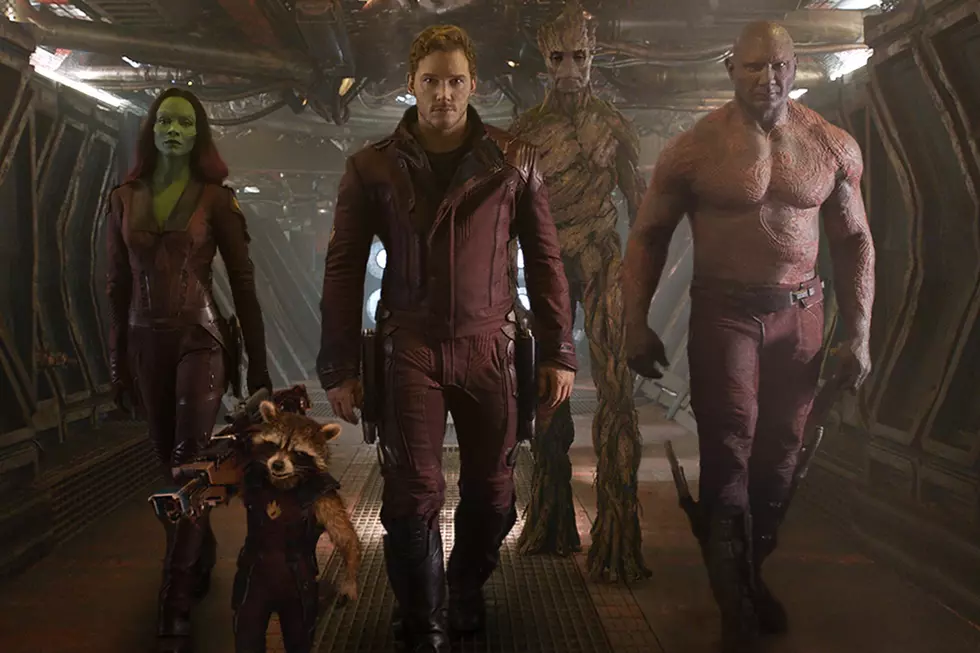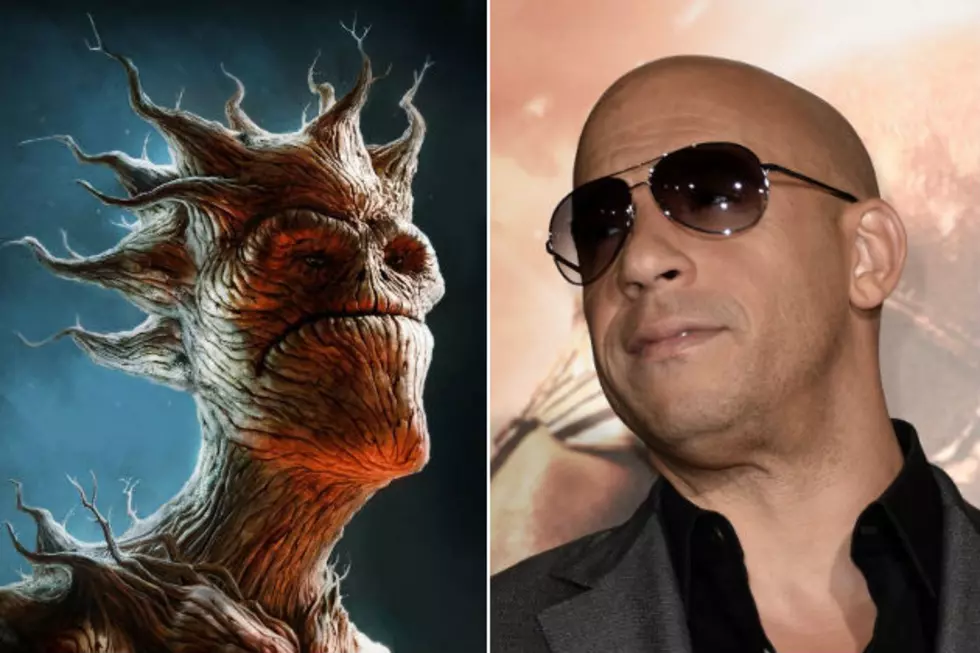
‘Riddick’ Review
It should have been called ‘No Homo: The Movie.’
Vin Diesel, whose entire career feels like homage to the musclebound machismo of the 1980s, has possibly reached the peak – by which I mean, nadir – of his search for the meaning of virility. ‘Riddick,’ the overdue, and largely unwanted, third installment in Diesel’s first big film series, is so full of tough-guy overcompensation that it makes the ‘Fast and Furious’ movies seem like understated character studies by comparison.
Reunited with writer-director David Twohy for an adventure that seeks to balance the scruffy intimacy of ‘Pitch Black’ with the mythic sweep of ‘The Chronicles of Riddick,’ Diesel commands a franchise reboot that offers equal measures of despicable behavior and stultifying plotting to offer his growing army of fans one of the dumbest and most offensive sci-fi/action movies in recent memory.
After pulling himself from the rubble of a massive avalanche on a foreign, inhospitable planet where he was left to die, Riddick (Diesel) begins a quest to regain the killer instincts that dulled after he succumbed to boredom as ruler of the Necromongers. Adopting an indigenous, doglike creature as a companion, Riddick crosses the planet’s desertlike landscape, eventually arriving at an abandoned way station which may hold the key to his escape. After his call for help is answered by not one but two groups of mercenaries, each with its own designs for the fugitive, he attempts to pit them against one another in order to steal one of their ships. But, even when they begin to make strides to apprehend Riddick, they’re soon forced to band together for survival after an impending storm threatens to unleash a horde of deadly monsters on their encampment.
Where the homoerotic tension between Vin Diesel and Paul Walker offers an additional layer of enjoyment to the primary-color bromance at the heart of the ‘Fast and Furious’ films, the competition between cast members in ‘Riddick’ to be the Most Masculine Character is a fatal distraction from the film’s mythology, and a cowardly perversion of the glistening alpha-male showdowns that inspired it.
Jordi Molla’s Santana is easily the film’s most deplorable character, oozing insecurity from behind a Napoleon complex that manifests itself in regular threats to rape Dahl (Katee Sackhoff), the film’s one female character. But the film’s hero seems equally determined to establish a physical dominance over his adversaries, and spares no effort describing his plan for them – which includes having sex with Dahl “sweet like, because she’ll ask me to,” a line one imagines Robin Thicke would have thought went too far in “Blurred Lines.”
Sackhoff plays Dahl like a post-Sarah Connor bad ass, but also like the end result of a little girl who aspired to be Linda Hamilton in ‘Terminator 2’ when she grew up. Twohy seems to think he’s leveling the playing field by making her physically tougher than most of the male characters, and by showing her indifference to the vulgarity of their advances. But, he also offers Riddick (and us) a pointless glimpse of her topless – paid off when the convict observes that her toenail polish matches the color of her nipples – and mostly reduces her interactions with other characters to fending off unwanted advances, including at least one full-fledged sexual assault. (Even more bizarrely, after one scene ends with her struggling against an attacker on the floor, we only learn she defended her virtue in dialogue from the next one.) Despite an early claim that she doesn’t have sex with men, Dahl later appears to be charmed by Riddick’s sophomoric overtures, which feels more like a testament to his irresistible virility than to her sense of empowerment, whether her earlier claim was simply a defense mechanism against creeps or a bona fide explanation of her ambiguous sexuality.
Sadly, the problem with these choices is less their consistent objectification and denigration of the film’s few female characters than their use as evidence of the utter and indisputable manliness of Dahl’s male counterparts. Aside from a female prisoner who it’s directly implied was raped multiple times after being captured, the only other women in the film appear in flashback – together, naked, in Riddick’s bed, evidencing the decadence and power of his position among the Necromongers. Like virtually all of the male characters’ chest-thumping proclamations of toughness, Sackhoff’s role, and her performance, feels like gross overcompensation, but it only underscores the film’s lack of confidence in creating a strong, truly equal female character.
If the film’s problems were only confined to its egregious gender inequality, it might be forgivable, but the rest of the script is a mess of contrivances, conveniences and self-homages that offer bad dialogue, awkward storytelling and zero suspense. If the first third of the film is a man-versus-nature survival tale, the second is a ten-little-indians scenario where Riddick preys on the mercenary teams, and the third a carbon-copy of ‘Pitch Black’ where enemies are forced to band together to defeat an external threat, this time unleashed by rain instead of just darkness. Worse yet is the choice for Twohy to shift perspectives in that second act from Riddick to his would-be captors; the film is named ‘Riddick’ for a reason, and it would have been more interesting to watch him pick them off than observe his nimrod victims repeatedly succumb to their own stupidity.
Ultimately, it’s difficult to remember another film in recent memory that seemed so insecure about its own toughness, and yet so relentless in trying to convince its audience that it wasn’t. But then again, this is a franchise that, in its second installment, mistook size for ambition, and vastly overestimated the appeal of “embiggening” the original’s scrappy, modest mythology. With ‘Riddick,’ Twohy and Diesel seem determined – desperate even – to convince audiences (not to mention Hollywood) that they can perform up to expectations; unfortunately, no amount of cinematic braggadocio can make up for the inevitable discovery that what’s hiding under their belts is a flaccid, unsatisfying excuse for sci-fi adventure.
'Riddick' opens in theaters on September 6.
Todd Gilchrist is a film critic with more than ten years of experience working in Los Angeles. A member of the Los Angeles Film Critics Association, Todd has contributed to a wide variety of print and online outlets, including The Wall Street Journal, Variety, The Playlist, MTV Movies, and IGN.
More From WGBFAM










